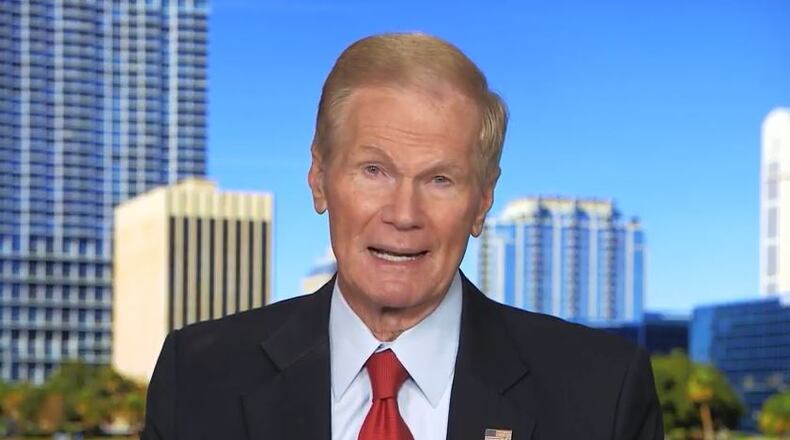After a post-election vote fight that showcased vote counting troubles in two south Florida counties, Sen. Bill Nelson (D-FL) conceded defeat to Gov. Rick Scott (R) on Sunday, ensuring Republican gains in the Senate in the 2018 mid-term elections, and delivering a welcome piece of good post-election news for President Donald Trump and the GOP.
"I just spoke with Senator Bill Nelson, who graciously conceded, and I thanked him for his years of public service," said Scott in a statement.
"My focus will not be on looking backward, but on doing exactly what I ran on," Scott said. "Making Washington Work."
"Thinks worked out differently than Grace and I had hoped," Nelson acknowledged in a video statement released on Sunday afternoon. "I will continue to fight for what's right."
Florida elections officials on Sunday announced a final advantage for Scott of 10,033 votes - that was down from just under 15,000 in favor of Scott when the machine recount began, and lower than the nearly 12,500 edge for the GOP before the hand recount started on Friday.
Credit: Jamie Dupree
Credit: Jamie Dupree
For Republicans, the hard fought win gives them a gain of two seats in the Senate for 2019, as the GOP will have a 53-47 edge, provided they can also win a special runoff election for Senate in Mississippi after Thanksgiving.
The Scott victory was a rare piece of good news for Republicans since Election Day, as the GOP has lost a number of close House races in recent days. Democrats have now gained 37 seats in the House, with five GOP seats still undecided amid continued vote counting.
Nelson becomes the fifth U.S. Senator to lose in November, joining three other Democrats - McCaskill in Missouri, Heitkamp in North Dakota, and Donnelly in Indiana - along with one Republican Senator, Heller in Nevada.
"I want to say thanks to all of you who rallied to our cause," Nelson said after calling Scott to concede.
While 5 Senators were tossed out by the voters in November, 27 House members - all Republicans - have been defeated. Several more could still lose in the five remaining House contests which are undecided.
Hanging over the defeat for Nelson is what appears to have been a ballot design problem in one small part of Broward County, Florida, where thousands of voters did not cast a vote in the U.S. Senate race, which happened at a much higher rate than other areas in that county.
The 'undervote' problems in that area of Broward County were just part of a slew of post-election issues highlighted by the wrangling over the final tally in both the Florida Senate and Florida Governor's race.
About the Author
The Latest
Featured




